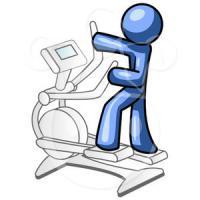
Training and Improvement
If you are a class player and want to improve you need to have some feedback on your play. There should be someone who can look at your game from a different angle and pinpoint weaknesses you need to work at. Usually, this should be a qualified trainer but it can also be a chess friend or someone higher rated than you. There are dangers with getting feedback: it might hurt your self-esteem and confidence, put you down and discourage you from further work. Criticism has to be constructive: it should address the issue and give recommendation(s) on how to improve on it. The first time you have a lesson with a trainer he will tell you to show your games and if possible with annotations. This will provide a trainer with necessary information on how the player makes decisions and on his strong and weak sides in chess, also on his psychology of the game. A good trainer will see a few of your games, ask some questions and will determine what elements of the game you need to work at. Anyone can run a game with a computer engine with blunder check and get feedback on tactics or blunders. Rybka will not tell you where you missed a critical position, where you spent too much time thinking or where you did not come up with a constructive plan. One needs a professional who can decipher your games and Rybka variations and present it in a coherent, learnable way. The coach should ask more 'why?' than 'what?' We come up with our plans or chess moves going through a complicated thinking processes and sometimes the right move does not justify the erroneous thinking process that we went through to come up with it.
Today, I would like to present two games played by my friend who is rated about 1900. Within the comments to the games you will find some advice and questions that I have asked him. I am not a professional coach; this was more done as a return of a favor he did for me. Two games is too small of a sample to judge the player’s style but it is enough to give some outline of what strategies he uses during the game. The openings are not classical but rather off-beat lines. The battles are rather sharp encounters, my friend is definitely inclined towards the game being complex, with tons of resources for both sides.
The advice that I would give is to work on positional aspects of the game for Daniel. It is too broad of a field but concentrating on structural elements when looking at other games and playing his games should be a good start. He should ask himself about the weaknesses that the opponent and he have, the plans of exploiting them, and the possible endgames that result from the positions. The game is not only about calculating insanely complicated lines, like computers do, the chess game is also about coming up with correct plans and implementing them. It seems Daniel had the right plans but then had trouble in finishing them when the position asked for it. As in the first game, where he need to exploit the weakness of the black king with the sacrifice at c5, that makes sure that the king stays in the centre. Only a correct evaluation of the position, that black’s main advantage is white’s king in the centre could have led to the right decision. In the second game the moment that caught my attention was the knight transfer to e5 – the square is so weak and the knight is so well placed in the centre that the Nd7-Ne5 maneuver should come more or less automatically. This maneuver is hard to find when one bases the decision-making process only on calculations - when the element of structures is missing. I would think that the difference between masters and class players is not the amount of variations that they see but rather the amount of typical plans and structures they know. They see chess in three-dimensions, while weaker players see it through one dimension only.
It is easier to look at chess game when you have a solid positional understanding of the game. There would be less questions: one would not ask why the knight did not go to the edge of the board when there is still tension in the center. The best way to learn this mastery is from a good coach but books can be a good substitute. As your chess level goes up there would be other questions that you would need to answer, for example how to evaluate a particular position where some imbalance rules. There are always chess problems you need to fight to become a better player, taking one at a time might be a good solution too. For example, concentrate for a month only on modification of pawn structures in the centre and you will see that your overall strength will increase, not only how you understand the center. This is so because all the elements are interconnected; chess is like this grid where one cannot get to some point without passing the other points along the way.






